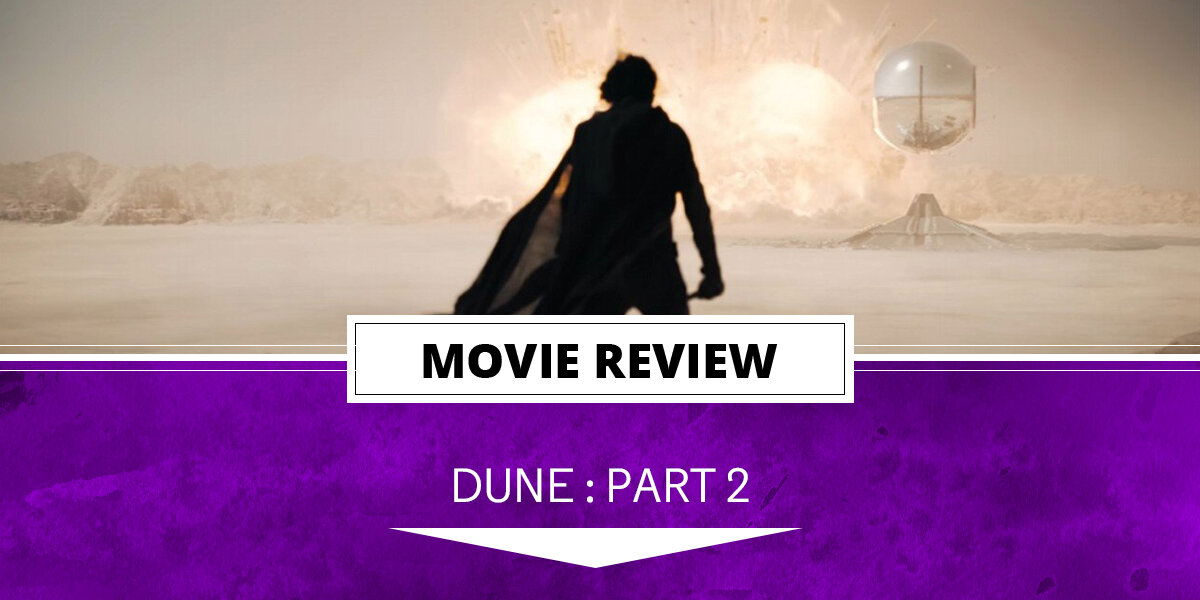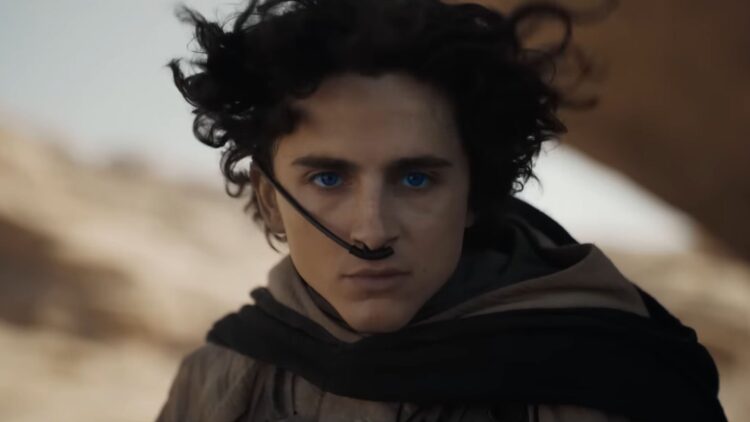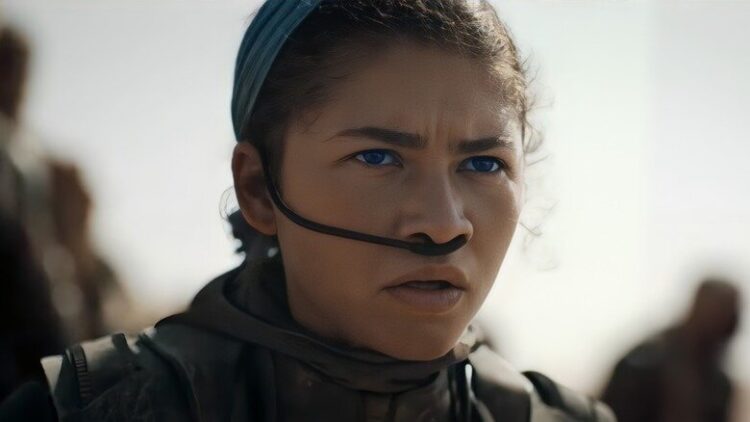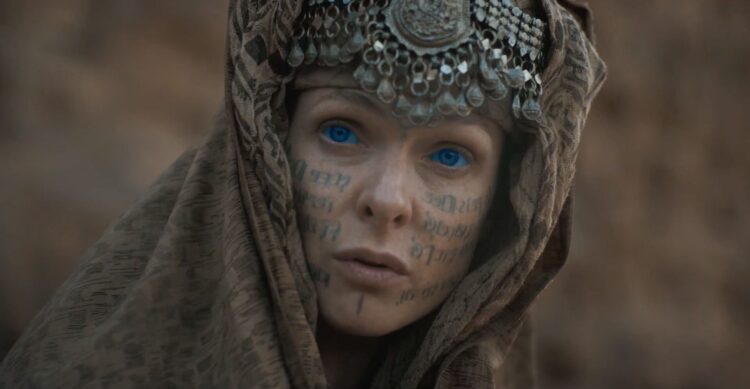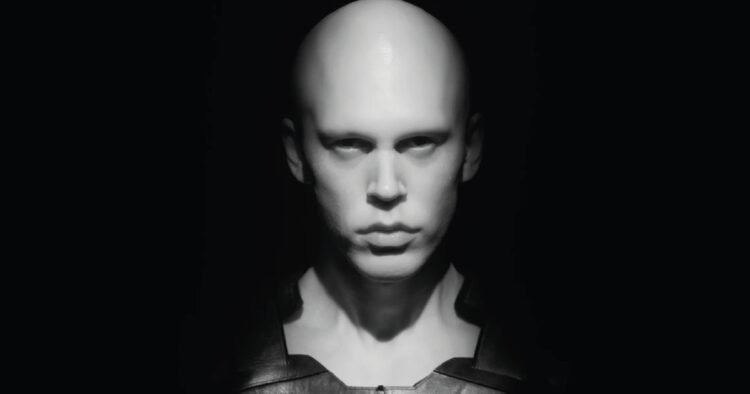If Hollywood has proven anything to me over the last several years, it’s that they’ve almost literally “lost the plot” of what can make movies great at times. They’re driven to think that certain high-octane sequences are all that matters or that “name brands and characters” can sell a movie just with star power alone…and that’s not true! You need substance, you need the right person behind the camera, and you sometimes need to go against the grain to deliver something special. As my Dune Part Two Review will hopefully spell out to you…they don’t make them like this anymore.
The movie picks up not too far after the events of the first movie (which, sadly, I didn’t get to review for this site; I did it for another.) Paul and his mother Jessica are with the Fremen people and are trying to join their ranks in the hopes of potentially avenging the fall of House Atreides. But what follows in those early scenes becomes something much darker, much more sinister, and something that the book series writer, Frank Herbert, wanted to make so clear that he wrote another book to make clear that Paul is not someone to be respected…but feared.
And that’s the first thing I want to commend here. Director Denis Villeneuve did many things to make his version of Dune stand out from the previous versions, and not just by making the book into multiple films. He intentionally took some of the narrative from Dune: Messiah and reworked the second film’s story in parts to highlight the true “downfall” of Paul Atreides and the danger of “reckless belief.”
Throughout the film, you see the start of Paul’s “hero’s journey” with the Fremen, even dismissing the notion that he is the “messiah” that they seek. He knows that his mother, Jessica, and her sisters in the Bene Gesserit had merely “planted seeds” in places like Arrakis so that they WOULD belief in a messiah when it “suited them.” Thus, he just seeks to be one of them and protect his mother, unborn sister, and his soon-to-be lover in Chani. But then, you slowly see how things shift. Certain character arrivals and “evolutions,” such as with Jessica, start to warp Paul and the narrative around him so that he has no choice but to become their savior, and he “drinks the Kool-Aid” in rather literal fashion.
That’s the second thing I must praise here. The performances by Timothée Chalamet, Zendaya, Austin Butler, Javier Bardem, Rebecca Ferguson and many of the others help build up the world and narrative in a way that is compelling without doing things the “Hollywood way” and overdoing it. The best example of this is Chalamet’s portrayal of Paul during his “descent” and how Chani acts throughout.
Here, Chani goes from a “skeptic” of how Paul will be among the Fremen to his trainer, his supporter, his lover, and, for a long time, his lighthouse. We see how they grow as a couple, which helped cement the passage of time through the various events, and when it all falls apart, you can see it not through dialogue…but through how they look at each other. A key scene near the end that I won’t fully spoil highlights the outrage and betrayal that Chani feels because of Paul while Paul looks at her with sympathy because he knows he’s hurt her…and yet as the “messiah,” he has no choice but to do this singular act to help cement his position in the future.
This movie isn’t so much about action as it is about characters and narrative, and I’m fine with that here. As I highlighted in my Dune Part Two Review subtitle, this is a “narrative spectacle” because Denis Villeneuve takes his time, literally, to build up everything step-by-step so that when things finally converge, it’s meaningful. A great example of this is with the new characters, such as the Emperor, or the arrival of Feyd-Rautha, who is nothing short of psychotic. They don’t dominate the movie, but when they’re on screen, they make it clear that their words and actions matter. They even went noir with the Feyd-Rautha scenes so it would deliver a different impact. It worked, for the record.
That brings me to another key element of the film: the visuals. Much like the first film, Dune: Part Two is something to behold visually. Villeneuve goes full-tilt with his visual style to deliver striking shots both on Arrakis and the other places we visit. From special one-shot moments that help seal their intensity, such as Paul waiting for the “grandfather worm” to arrive, to key set up shots for important moments and events, everything is on point. It would’ve been weird if it wasn’t on point, given how the director feels about things like dialogue versus using actions to express things.
That’s a good segue into something that might surprise people. While there are plenty of big action moments in this film, they’re not the focus. Unlike MANY other movies that does “up and down peaks” featuring action sequences and narrative moments, Villeneuve instead takes a methodical approach with only using action sequences to tell the story he wants to tell. Even the “final battle” against the Emperor featured only a few fights because that wasn’t the point of the film: it’s about the characters and the dangers of belief.
Yes, “the dangers of belief.” Frank Herbert wrote his books to warn of what happens when faith gets taken to the extreme, and the movie highlights that beautifully here in several key scenes. First, there’s Jessica using her influence powers to basically warp the minds of the Fremen so they would accept Paul as their Messiah. Then, there’s Stillgar, who believes Paul is the messiah from the start, and even when Paul denies “what he is,” Stillgar doesn’t care. At one point, he even yells, “It doesn’t matter what you believe, I believe it!” A very poetic way of showing the impact, both good and bad, of faith in some people. Then, when Paul “ascends” to his higher-powered state, no one but Chani questions his actions and intentions. Why? He’s the one who will lead them to “paradise.” So, who are they to argue with the “word of God?”
This story is told very carefully, and that’s likely why people are reacting to it so positively.
So, given all this, you might think my Dune Part Two Review is getting a perfect score or a near-perfect score, right? Wrong. In fact, I’m giving it the same score as the first movie: 4/5. Why? A few reasons.
First, while I enjoyed the “narrative-first” approach to things, there are many who this style won’t resonate with. I accept that, and it’s a fair criticism in parts. Even my father, who I watched the film with, admitted he would’ve liked to see a bit more action, and I agree with that because some parts of the film could’ve used it, especially the rather slow beginning.
Second, while I enjoyed the film, some of the “cuts” from one scene to the next felt a bit too rough. It seemed like certain things were supposed to be told or done there, and then they were just abandoned. I found out before this review that multiple characters were cut from the film as a whole, and now I wonder what they would’ve added to the film to flesh it out even more. Furthermore, because of some of these cuts, it’s a little hard to understand the “timelines” of when everything is happening until it’s literally dropped on you, and you must put it all together yourself.
Third, and this one might sound weird, but if I was to compare this to say…John Wick 4…one of these movies I’d watch maybe every month or so…whereas the other I’d watch every week and never grow tired of it. Hint: John Wick 4 is the one I’d never grow tired of. Why? Well, both have strong elements and casts, but while Dune was great, it didn’t leave me “enthralled” with it. I didn’t have the urge to “watch it again soon” once I was out of the theater. I was happy to have seen it, but it’s not a movie I feel many will want to watch repeatedly, given everything that’s going on in it. Some spectacles you only need to see once.
Finally, while the visuals are impressive, the ‘blurry green screen’ effect is still in play in many shots, and I was a little disappointed that some parts weren’t as crisp as they arguably should’ve been.
In the end, though, Dune Part Two was a near-masterpiece of a film from a director who had a vision of a story he wanted to tell…and he told it well. It’s unclear if a third film is coming…even though the ending did set up the “holy war,” but this one does tell a grand story, and it’s a film that Hollywood should learn lessons from.
Dune Part Two Review
Dune Part Two dares to do things at its own pace, and intentionally skips much of the “Hollywood blockbuster” tropes that have driven Hollywood to the brink at times. It doesn’t always land, but it’s something you won’t want to miss.
-
Dune Part Two Review


